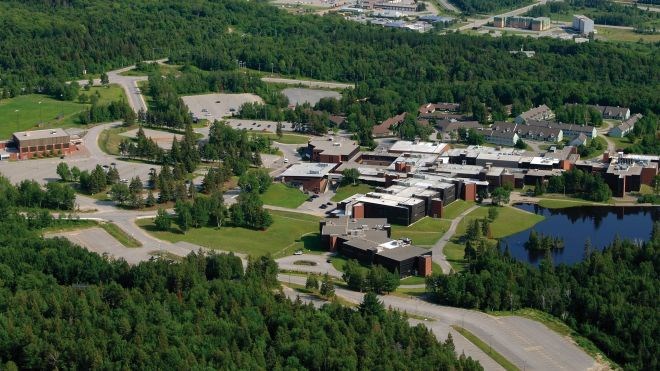Nipissing University is now home to a Statistics Canada Research Data Centre (RDC), a high-level, secure network and data lab that provides researchers with local access to Statistics Canada’s confidential, large-scale survey data.
Researchers can now visit Nipissing University to access data collected from a long list of surveys to help them explore a wide variety of Canadian social and economic issues on education, work, aging, literacy and numeracy, health, mental health and well-being, nutrition, information and communication technology, ethnicity and diversity, family, retirement and the labour force, immigration, language, disabilities, youth, and crime. The list of available surveys can be found here http://www.statcan.gc.ca/eng/rdc/data.
The RDC was made possible by funding from the Canada Foundation for Innovation, earned by Dr. David Zarifa, Canada Research Chair in Life Course Transitions in Northern and Rural Communities and associate professor of sociology.
“Thank you to the federal and provincial governments for their investment in Nipissing University,” said Dr. Mike DeGagné, president and vice-chancellor of Nipissing University, in a statement.
“This funding is a boon to our faculty, our students and our local community. It enhances our capacity to conduct research exploring a wide variety of Canadian social and economic issues on a range of topics.”
“The development of the RDC alleviates many pressing financial and geographic barriers for researchers like myself,” said Zarifa.
“Prior to its establishment, researchers had to travel to either Toronto or Ottawa to access this data. The establishment of the RDC at Nipissing University will enhance Northern Ontario’s capacity to conduct quantitative research on Canadian social, cultural, and economic issues.”
“The new RDC also creates unique opportunities for Nipissing University students to work side by side with their professors to develop their methodological skills, and gain practical experience working with the most recent large-scale Canadian survey data,” added Zarifa.
Construction of the 700-square-foot, $363,000 secure facility was made possible by funding from the Canada Foundation for Innovation, John R. Evans Leaders Fund ($104,820), the Ontario Research Fund from the Ministry of Economic Development and Innovation ($104,820), and the remainder from Nipissing University in support of Zarifa’s Canada Research Chair.
Having the RDC at Nipissing University will allow Zarifa and his research team to investigate the relationships between sociodemographic characteristics and the acquisition of education and skills, and the immediate and longer-term impact of education and skills on labour market experiences in Northern and rural Canada.
Nipissing University joins 28 other RDCs located at other universities across Canada as part of the Canadian Research Data Centre Network (CRDCN). Hosted by McMaster University, the CRDCN is a partnership between a consortium of Canadian universities and Statistics Canada. In 2016, over 1,500 researchers accessed one of the 28 university-based facilities located across the country.
Over the next five years, the CRDCN has secured over $14,000,000 from the Social Sciences and Humanities Research Council of Canada (SSHRC) and the Canadian Institutes for Health Research (CIHR), and nearly $6,000,000 from the Canada Foundation for Innovation’s Major Scientific Initiative Fund (MSI) to support the operation and management of the RDCs.
The Nipissing University RDC is an affiliate of the University of Toronto RDC, and will receive analyst support from York University’s RDC. Researchers interested in obtaining access to the RDC data are encouraged to contact the centre.




